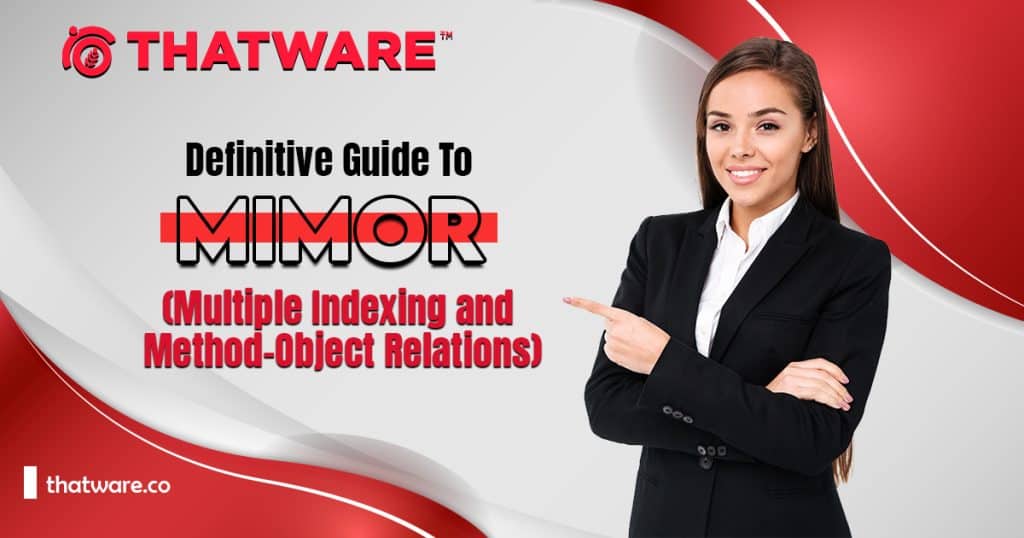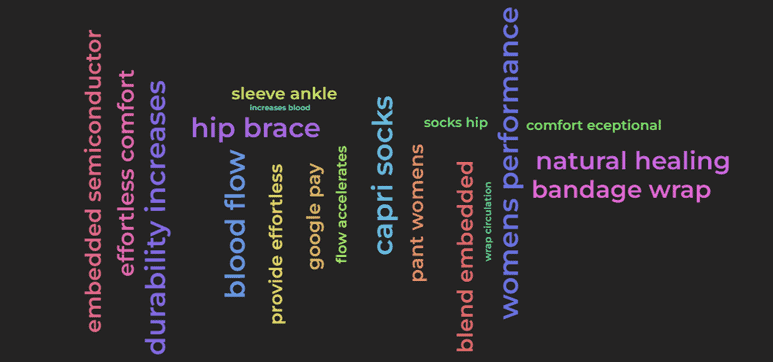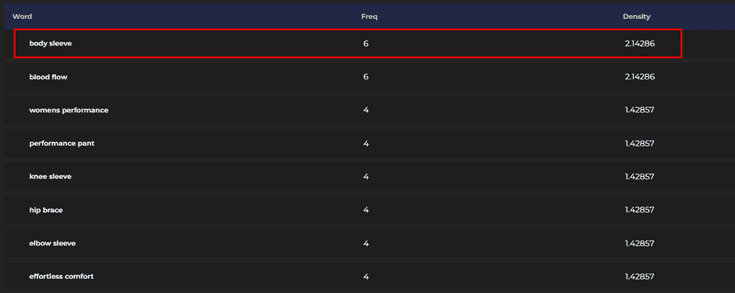SUPERCHARGE YOUR ONLINE VISIBILITY! CONTACT US AND LET’S ACHIEVE EXCELLENCE TOGETHER!
Welcome to MIMOR (Multiple Indexing and Method-Object Relations): The Definitive Guide. To get the best results in the ever-changing fields of information retrieval and search engine optimization (SEO), it is critical to comprehend and make use of cutting-edge models like MIMOR.

A novel method to long-term learning, the MIMOR model is specially designed to recognize and adjust to user preferences in information retrieval settings. Through the smooth integration of a relevance feedback processor and a fusion mechanism, MIMOR provides an advanced framework for context adaptation that is not limited by content.
We explore the complexities of MIMOR in this extensive guide, revealing its fundamental ideas, working methods, and useful SEO applications. We traverse the process of optimizing content to resonate with search engine algorithms as well as human intent through thorough analysis and useful insights.
Join us as we explore MIMOR’s intricacies, break down its features, and discover how to improve your online presence by making wise decisions and optimizing your material strategically. Come along as we unleash MIMOR’s ability to increase your online presence and relevance to unprecedented levels.
What is a MIMOR model
The MIMOR model (Multiple Indexing and Method-Object Relations) is the long-term learning of user preferences in information retrieval. MIMOR integrates a fusion method and a relevance feedback processor into a learning model. This model is for context adaptation which can be realized independently from content.
In SEO terms, we will follow some procedures, such as:
• Use to check short and simple query
• Then need to check keyword is relevant or irrelevant
• Need to check the current density of the query
• Need to optimize the keyword according to results.

We are checking all the keywords in the content. We fetch the search term “body sleeve” from many documents on a page.
Here we can see the keyword is perfectly mapped with the webpage.

We have to check the relevancy of the keyword.
Here relevancy score is a little bit low rather to the competitor.

We have to check the density of the keyword. We can easily fetch the score.
The current score is 2.14286.
Now we have to optimize the content for better relevancy.

After the optimization, the relevancy scores are improved.
The Benefits of Multiple Indexing and Method-Object Relations
Multiple Indexing and Method-Object Relations (MIMOR) represent more than just a sophisticated model for information retrieval and SEO optimization. It’s a paradigm shift in how we approach content relevance, user satisfaction, and overall digital presence. Below, we delve into the manifold benefits that MIMOR brings to the table:
Enhanced Relevance: MIMOR’s primary advantage lies in its ability to enhance the relevance of search results. By analyzing user behavior, preferences, and feedback, MIMOR fine-tunes search algorithms to deliver more accurate and contextually relevant content to users. This ensures a higher level of satisfaction among searchers, leading to increased engagement and retention.
Improved User Experience: At the heart of MIMOR is the focus on improving the user experience. By understanding the nuances of user intent and preferences, MIMOR enables search engines to surface content that aligns closely with what users are seeking. This results in a more seamless and intuitive browsing experience, where users can easily find the information they need without unnecessary friction or frustration.
Dynamic Adaptation: One of the key strengths of MIMOR is its ability to dynamically adapt to changing trends and user behaviors. Unlike static indexing methods, which may quickly become outdated, MIMOR continuously learns and evolves based on new data and feedback. This ensures that search results remain fresh, relevant, and reflective of the latest developments in a given field or topic.
Optimized Content Discovery: MIMOR’s advanced indexing and relationship modeling capabilities facilitate optimized content discovery. By identifying and establishing meaningful connections between various entities, such as keywords, topics, and user preferences, MIMOR helps surface content that might otherwise remain buried in the depths of the web. This enables content creators to reach a wider audience and maximize the visibility of their offerings.
Personalized Recommendations: In an era where personalization is king, MIMOR shines by delivering personalized recommendations tailored to individual user preferences. By leveraging insights gleaned from past interactions and feedback, MIMOR can predict user interests and proactively recommend relevant content, products, or services. This not only enhances the overall user experience but also drives higher conversion rates and customer satisfaction.
Efficient Resource Allocation: MIMOR’s efficiency extends beyond just improving search results—it also optimizes resource allocation for content creators and marketers. By providing insights into which keywords, topics, or content formats resonate most with users, MIMOR enables organizations to allocate their resources more effectively. This means focusing efforts on areas that are likely to yield the greatest return on investment, whether it’s creating targeted content, refining SEO strategies, or investing in specific advertising channels.
Data-Driven Decision Making: Central to MIMOR’s approach is the reliance on data-driven decision making. By leveraging vast amounts of data, including user interactions, search queries, and content analytics, MIMOR empowers organizations to make informed decisions that drive business growth. Whether it’s identifying emerging trends, optimizing content strategy, or refining product offerings, MIMOR provides valuable insights that enable organizations to stay ahead of the curve.
Competitive Advantage: In today’s hyper-competitive digital landscape, having a competitive edge is essential for success. MIMOR provides organizations with a distinct advantage by enabling them to deliver more relevant, personalized, and engaging experiences to their audience. By staying one step ahead of competitors in terms of content relevance and user satisfaction, organizations can position themselves as leaders in their respective industries and attract and retain loyal customers.
Multiple Indexing and Method-Object Relations (MIMOR) offer a wide range of benefits that extend beyond just improving search engine rankings. From enhancing relevance and user experience to driving personalized recommendations and enabling data-driven decision making, MIMOR empowers organizations to maximize their digital presence and achieve their business objectives in an increasingly competitive landscape. By embracing MIMOR and leveraging its capabilities, organizations can stay ahead of the curve and deliver unparalleled value to their audience.
Ethical Governance and Transparency in MIMOR Implementation
Amidst the technological advancements and data-driven approaches facilitated by MIMOR, it’s imperative to emphasize the importance of ethical considerations and transparency. As organizations leverage sophisticated algorithms to optimize content and enhance user experiences, they must ensure that these practices prioritize user privacy, data security, and transparency in algorithmic decision-making.
Transparent Communication: Organizations utilizing MIMOR should communicate openly with users about how their data is collected, analyzed, and utilized to personalize experiences. Transparent communication fosters trust and enables users to make informed decisions about their online interactions.
Ethical Data Usage: Upholding ethical standards in data usage is paramount. Organizations must prioritize user consent, anonymization, and data protection to safeguard user privacy and maintain ethical integrity in their operations.
Bias Mitigation: MIMOR’s algorithms must be rigorously tested and monitored to mitigate biases that may inadvertently impact search results or recommendations. By implementing measures to identify and address biases, organizations can ensure fair and equitable outcomes for all users.
User Empowerment: Providing users with the ability to control their data and preferences is crucial for empowerment. Providing opt-in/opt-out mechanisms, granular privacy settings, and clear explanations of how user data influences their experiences fosters a sense of empowerment and agency.
Accountability and Oversight: Establishing mechanisms for accountability and oversight ensures that organizations are held accountable for their actions and decisions. This may involve internal audits, external reviews, or regulatory compliance measures to uphold ethical standards and maintain public trust.
By integrating ethical considerations and transparency into the implementation of MIMOR, organizations not only demonstrate their commitment to responsible innovation but also foster long-term relationships built on trust and integrity. In an era where data privacy and ethical use of technology are paramount concerns, prioritizing ethical considerations alongside technological advancements is essential for sustainable growth and societal well-being.
Conclusion
The Definitive Guide to MIMOR (Multiple Indexing and Method-Object Relations) has shed light on a revolutionary approach to information retrieval and SEO optimization. Through the lens of MIMOR, we’ve explored the intricate mechanisms that drive enhanced relevance, improved user experiences, and dynamic adaptation in the digital landscape.
MIMOR isn’t just a model; it’s a paradigm shift—a testament to the power of data-driven decision-making and personalized experiences. By harnessing the capabilities of MIMOR, organizations can unlock a multitude of benefits, from optimizing content discovery to driving competitive advantage in a crowded marketplace.

Thatware | Founder & CEO
Tuhin is recognized across the globe for his vision to revolutionize digital transformation industry with the help of cutting-edge technology. He won bronze for India at the Stevie Awards USA as well as winning the India Business Awards, India Technology Award, Top 100 influential tech leaders from Analytics Insights, Clutch Global Front runner in digital marketing, founder of the fastest growing company in Asia by The CEO Magazine and is a TEDx speaker and BrightonSEO speaker.


